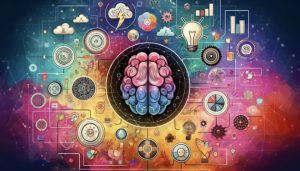
Mental models are internal representations of the external world that people use to understand and interact with reality. They are cognitive structures thatallow us to interpret information, make decisions, and solve problems. Mental models influence how we perceive the world, how we behave, and how we respond to different situations.
Here are some key characteristics of mental models:
1. Simplifications of reality: Mental models are not perfect copies of the real world but simplified versions that help us understand and navigate complexity.
2. Based on experience and knowledge: Mental models are formed through our experiences, observations, instructions received, and knowledge acquired over time.
3. Dynamic and adaptable:Mental models can change and adapt as we acquire new information and have new experiences.
4. Used to make decisions:When we face a situation, we use our mental models to make predictions and choose the most appropriate actions.
5. Influence on perceptions and behaviors: Mental models influence how we perceive the world and how we behave. They can also create cognitive biases, causing us to see things in a distorted or biased way.
6. Variety of applications: Mental models are used in various fields, from psychology to business management, from education to engineering, to improve understanding and effectiveness in different situations.
Discover how mental models influence your everyday decisions and enhance your ability to solve complex problems. Learn effective thinking strategies to improve your personal and professional life, gaining a deeper understanding of the world around you. Dig deeper into the secrets of mental models and transform your way of thinking to achieve extraordinary results!


